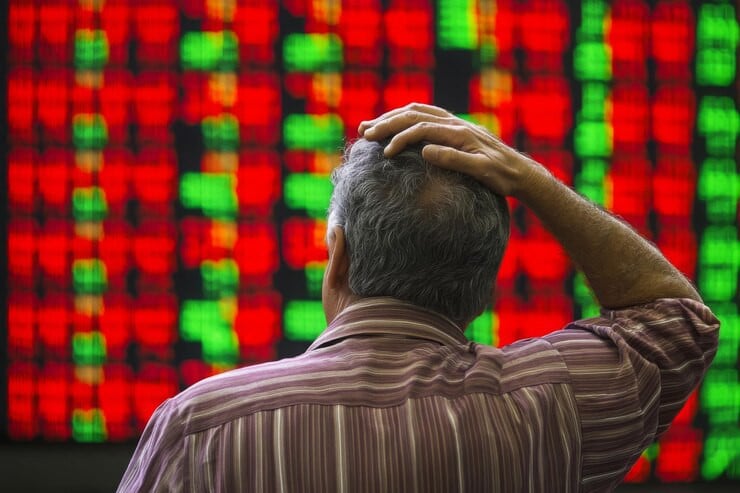
Pakistan Stock Exchange (PSX) remained under pressure throughout the outgoing week as the Trump trade war, profit-taking and concerns over the upcoming International Monetary Fund (IMF) review weighed on investor sentiment.
The KSE-100 index shed 3,933 points, or 3.44% week-on-week (WoW), closing at 110,323. Sector-wise, oil and gas exploration, commercial banks, fertiliser and technology dragged the index down while insurance firms and real estate investment trusts (REITs) provided slight support. On the economic front, the headline inflation for January 2025 dropped to a 101-month low of 2.4% year-on-year (YoY) while trade deficit widened 18% YoY to $2.3 billion. The State Bank of Pakistan (SBP) raised Rs452 billion in a T-bill auction and foreign exchange reserves inched up $46 million to $11.4 billion.
Foreign selling intensified, totalling $9.88 million, while market volumes and traded value declined 12.8% and 22.9% WoW, respectively.
On a day-on-day basis, the PSX on Monday lost significant ground as it shed 1,511 points, thanks to the global market decline following US President Donald Trump's tariff announcements for Mexico, Canada and China, potentially initiating a trade war.
Domestic concerns including political uncertainty and the upcoming IMF review added to the bearish sentiment.
On the second trading day, the bearish run continued as the KSE-100 index erased 810 points, primarily due to concerns over a global trade war following the announcement of Trump's tariffs coupled with a sharp decline in international crude oil prices. Analysts pointed out that profit-taking, local political uncertainty and foreign fund outflows further contributed to the negative sentiment.
On Wednesday, the market was closed on account of Kashmir Day. Next day, the bourse resumed trading with heavy selling where investor confidence took a beating in the face of concerns about foreign debt repayments and potential changes to the EU GSP Plus status. At close, the index posted a loss of 1,634 points.
On the last trading day, the PSX ended flat amid the ongoing corporate earnings season and investor caution ahead of the IMF review. Concerns over tax collection shortfall and external debt payments kept the market in check. The index recorded a marginal rise of 22 points.
Arif Habib Limited (AHL), in its weekly review, wrote that the market remained negative throughout the week, driven by profit-taking, selling pressure and some concern related to the upcoming IMF review.
On the economic front, the headline inflation for January 2025 dropped to a 101-month low of 2.4% YoY. In addition to this, the trade deficit widened 18% YoY in January, arriving at $2.3 billion, it said.
Moreover, the SBP raised Rs452 billion in the T-bill auction in line with the target of Rs450 billion. Petroleum sales remained stable at 1.38 million tons in January on a YoY basis and grew 8% month-on-month.
Cement dispatches for January increased 14% YoY to 3.895 million tons. In the month, urea and DAP sales decreased 27% and 6% YoY, respectively.
Sector-wise, negative contribution at the PSX came from oil and gas exploration companies (821 points), commercial banks (593 points), fertiliser (479 points), technology and communication (264 points) and oil and gas marketing companies (232 points).
Stock-wise, negative contributors were Mari Petroleum (291 points), Fauji Fertiliser Company (241 points), Pakistan Petroleum (235 points), HBL (226 points) and Engro Fertilisers (202 points).
Foreigners' selling continued during the week under review, which came in at $9.88 million compared to net selling of $4.7 million last week.
Average volumes arrived at 434 million shares, down 12.8% WoW, and average traded value settled at $76 million, down 22.9%.
JS Global analyst Abdul Basit said in his report that KSE-100 experienced a negative trend throughout the week. The week commenced with the release of Consumer Price Index (CPI), which came in at 2.4% YoY for January, marking its lowest level in over nine years. Pakistan signed a $1.2 billion agreement with the Saudi Fund for Development to ensure sufficient oil imports on deferred payments for one year, which bodes well for managing external financing needs, he said.
In other developments, following Punjab and Khyber-Pakhtunkhwa, the Sindh Assembly passed the Agricultural Income Tax Bill ahead of the IMF review, the analyst added.
























COMMENTS
Comments are moderated and generally will be posted if they are on-topic and not abusive.
For more information, please see our Comments FAQ